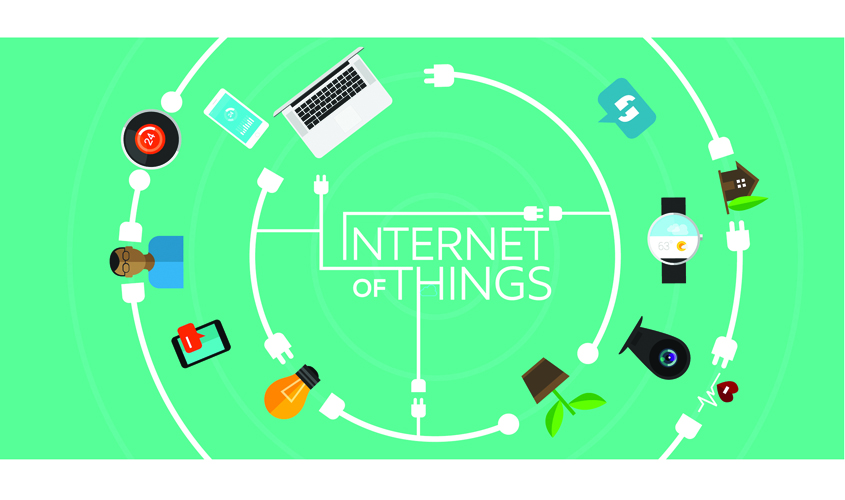Given the times when “Smart Cities” — a notion of improving cities so as to improve the quality of life for the citizenry — and smart phones are evolving into indispensible members of our lives, it would be to our advantage to know a little more about what they have in store for us. The Internet of Things is an idea which has been operational since 2013 and is a critical subject since the number of active electronic devices in the world has reached beyond a whooping 7 billion.
The Internet of Things is basically a network which exists because we as humans are able to connect our devices to the internet. Once these devices (all electronic objects like phones, cars and even washing machines) are connected to the internet they are able to connect with each other.
The Internet of Things is basically a large network of interconnected devices. This means that your devices can talk to each other, obviously not literally, your iPhone won’t send a message to your Mac saying, “Hey, Jim what does the day look like to you?” Communication here means exchange of information. Just imagine how far this can go, take for example your refrigerator, it will process information related to the available groceries in it and thus determine what is no more available, and in turn send a message to your other device to order for the groceries which need to be replenished. Take another example, your alarm clock on your phone or your health tracking band like fit bit begins to note your waking hours and on the basis on that sends information to devices like your coffee machine to get a black coffee brewing and your geyser to start warming water for a bath. These are networks existing between the devices in an individual’s life.
When we talk about Smart Cities these networks can exist between establishments, like a device which tracks a fire and sends information to the nearest authority immediately to send in support. The possibilities are literally unlimited. Gartner, an analyst firm has predicted that there shall be over 26 billion devices connected to the internet by 2020 – that is if productivity lasts. But, this means a whole digital space which shall be able to independently make arrangements so as to improve the lives of individuals, institutions and other social congregations.
As is the case with much on this planet there are challenges which have already been assumed to strike with brute force. The first is surely the amount of information; we are talking about a colossal number of devices which shall keep exchanging terabytes of data. Then there is the task of finding ways to collect, organise, process and then react to information. It’s not as easy as it looks in writing when we say that the refrigerator will track the number of absent groceries and then send the information to the device which shall then place an order. There is the obvious problem of security, can a network be breached and the information compromised if someone hacks into the coffee machine? Just the thought of it is threatening enough. Then is the primary issue of private and public data, how shall data be streamlined so that your information which is meant to be among your devices in your office remains inaccessible to the devices of your colleagues? One can also ask about storage, how is data divided into necessary and not necessary?
The Internet of Things is yet another massive sphere which is child to the big bad daddy called technology. Much is possible through this massive network, things can be improved in terms of efficiency and saving but the obvious sense of threat which has latched itself to technology keeps creeping up behind us while we ogle at the sky with our dreamy eyes.

